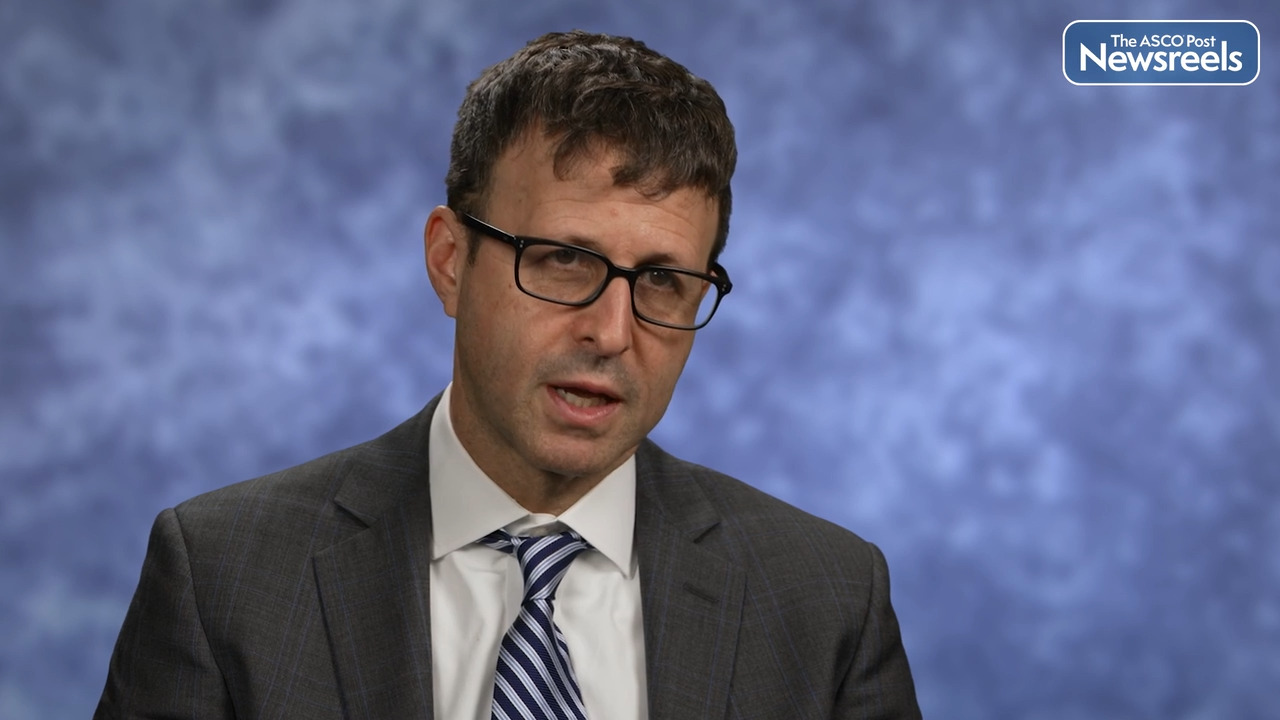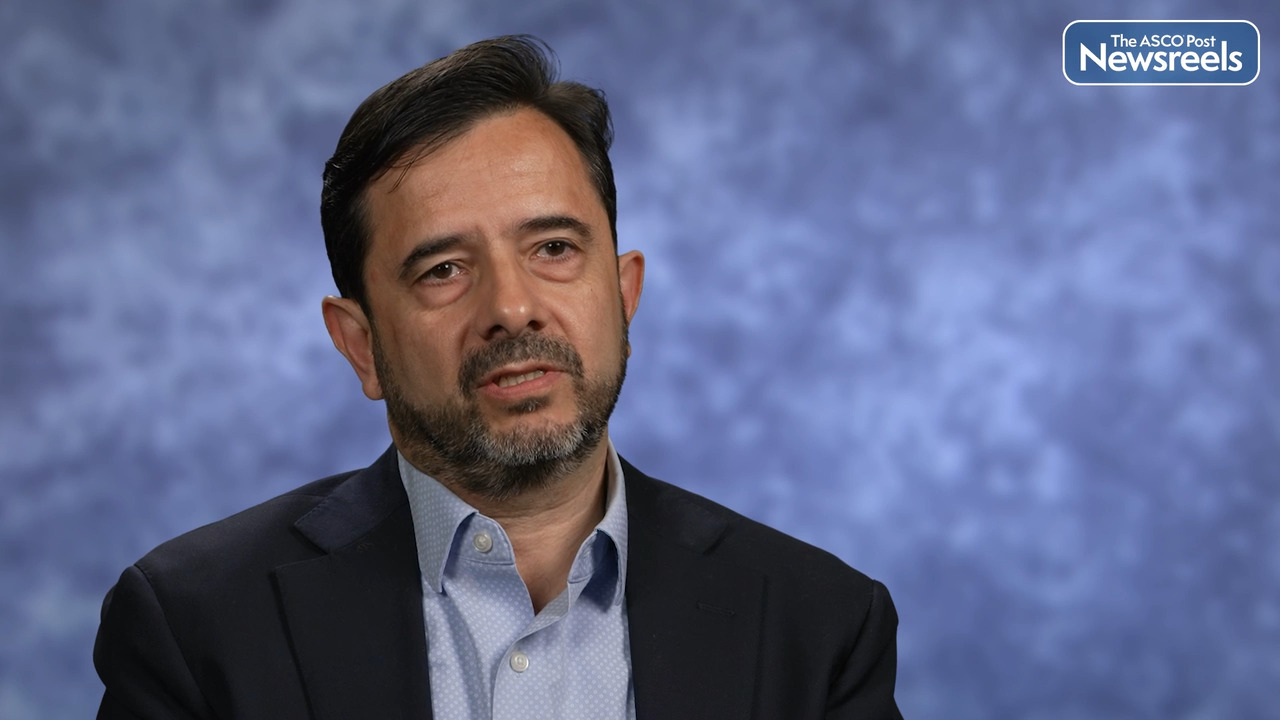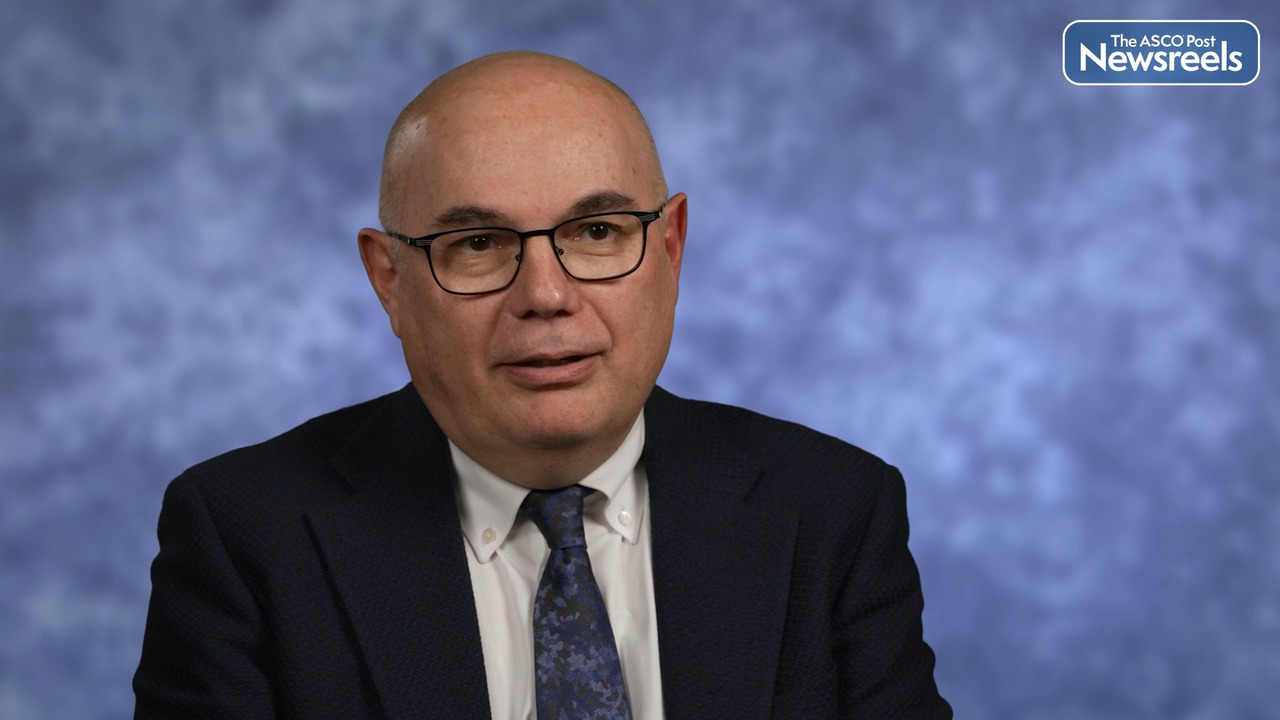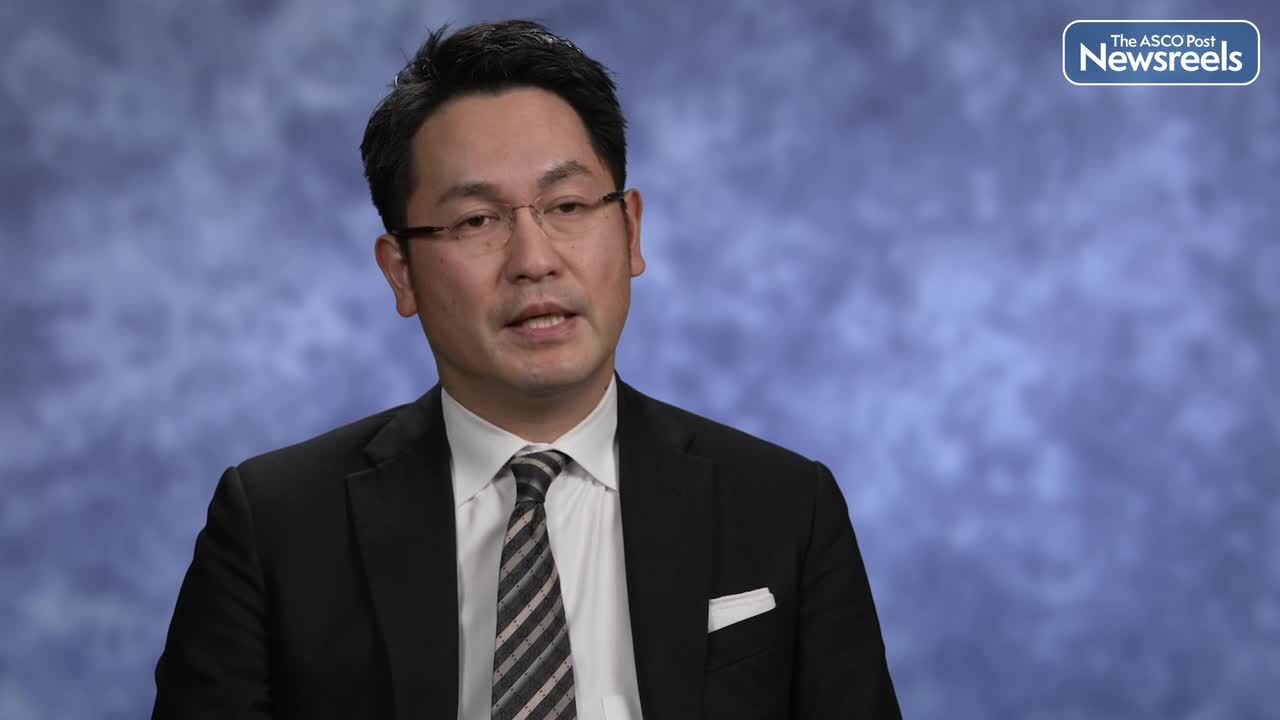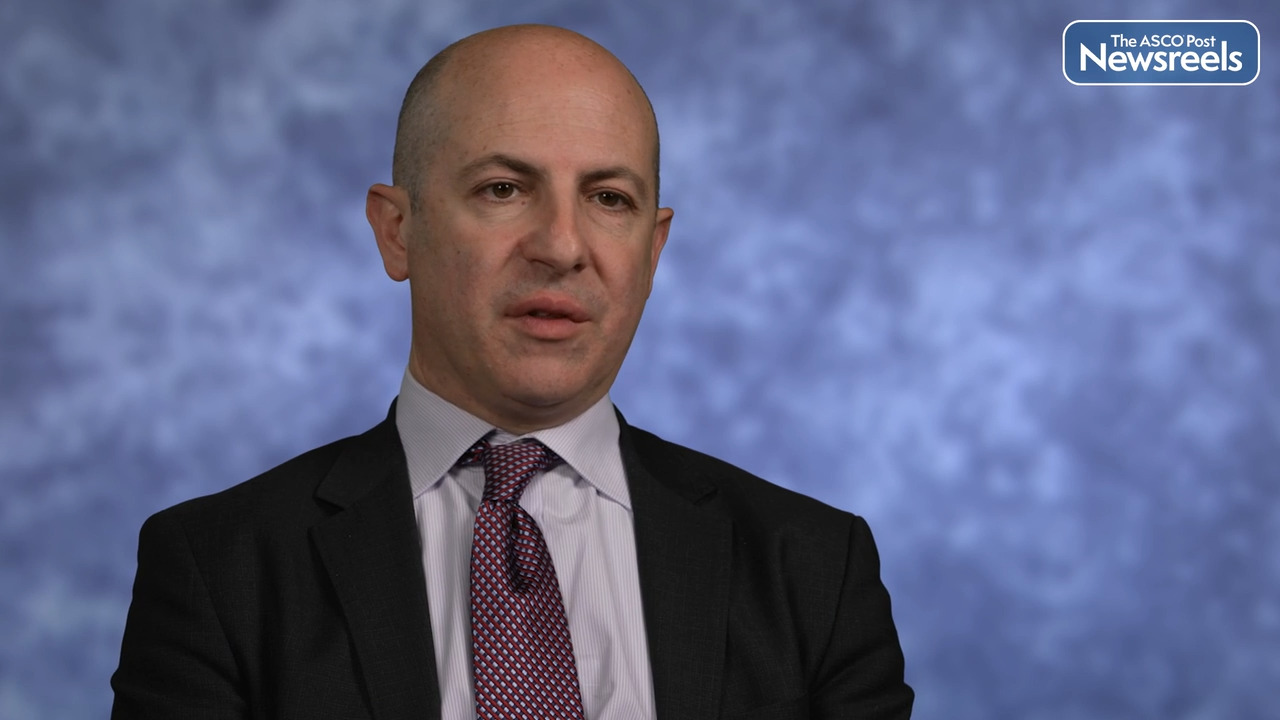Transcript
Disclaimer: This video transcript has not been proofread or edited and may contain errors.
Microsatellite instability is associated with better survival and potential lack of benefit from chemotherapy in patients with the resectable gastric cardiac junction cancer, and it is one of the strongest predictors of the efficacy of immunotherapy. In early stage disease, the activity of immunotherapy is even higher, and immune checkpoint inhibitors may allow the emission of chemotherapy, radiotherapy, or even surgery. Finally, a single high dose of tremelimumab added to the anti PD-L1 agent durvalumab may induce higher T cell expansion and is approved for the treatment of patients with HCC.
The INFINITY trial enrolled patients with MSI-high and deficient mismatch repair, resectable gastric cardiac junction cancer and clinical stage T2 or higher. Patients were treated with a single high dose of tremelimumab and 300 milligrams, plus three cycles of durvalumab every four weeks at standard doses. After re-staging, patients in cohort one, the court was presented at the meeting, received surgery and standard follow up.
The results of cohort one have been evaluated by an independent data monitoring committee, and so now the recruitment in cohort two of the trial has started to evaluate the same regimen as non-operative management strategy. The primary point of the first cohort was pathological complete response, and 18 patients were enrolled. Regarding baseline characteristics, the median was very high, 71 years old, consistent with these molecular subgroups, and 40% of the patients had T4 tumors. Regarding the primary endpoint, among resected patients, most of had pathological down staging. So, among all evaluable patients, the PCR rate was 60%. Also, the rate of major to complete pathological response was 80%.
The treatment was well tolerated, so no unexpected immune-related adverse events occurred, and grade 3 or more toxicities had very low frequency and did not impair the feasibility of surgery. We did, also, subgroup analysis and noted that the PCR rate was very low in the T4 stage subgroup.
Basically, what we learned from this trial, from cohort one of this trial, that T300/D regimen, or the so-called stride regimen, is safe in this population and has promising eradicating activity in patients with MSI-high resectable gastric cancer. We also know that larger studies are needed, but immunotherapy will soon represent the standard of care for this molecular subgroup of patients. And of course, we still have to investigate the optimal combinations of immune checkpoint inhibitors, the proper treatment duration, and the goal of treatment, whether it is neoadjuvant or organ preservation. In fact, the recruitment in cohort two of INFINITY trial is now ongoing after the EDMC evaluation and amendment of the protocol to exclude the T4 tumors from non-operative management. The INFINITY study was sponsored by the GONO Foundation in Italy, which is a nonprofit organization dedicated to the design of clinical trials.
